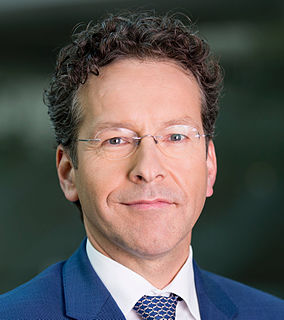A Quote by Muhammad Yunus
The Grameen Bank Ordinance with amendments up to 2008 is a beautiful legal structure for the fulfillment of the ideals and objectives of the bank. Any change in this structure will be devastating for the bank.
Quote Topics
Related Quotes
I want to work in a bank, definitely. Hopefully, my acting career will go well. But if it doesn't, I go to a bank. If it does, then even at the age of 40, I will still go to a bank, but I have to work in a bank, because I'm really fond of taxation and accounts and investments and all of that. So I will do it. At some point, I will, yes.
What we've done last night is what I call pushing back the risks..If there is a risk in a bank, our first question should be 'Okay, what are you in the bank going to do about that? What can you do to recapitalise yourself? If the bank can't do it, then we'll talk to the shareholders and the bondholders, we'll ask them to contribute in recapitalising the bank, and if necessary the uninsured deposit holders.
The whole financial structure of Wall Street seems to rise or fall on the mere fact that the Federal Reserve Bank raises or lowers the amount of interest. Any business that can't survive a one percent change must be skating on thin ice.
Why even the poor farmer took a raise of another ten percent just to get a loan from the bank, and nobody from the government paid any attention. But you let Wall Street have a nightmare and the whole country has to help to get them back into bed again.
I think one of the main challenges that the World Bank faces is creating an organizational structure that doesn't get in the way of its staff. We have fantastic staff. People told me as I was coming into the organization that the greatest asset of the World Bank Group is its staff, and I think there's no question that that's the case.
Our whole system of banks is a violation of every honest principle of banks. There is no honest bank but a bank of deposit. A bank that issues paper at interest is a pickpocket or a robber. But the delusion will have its course. ... An aristocracy is growing out of them that will be as fatal as the feudal barons if unchecked in time.
As a matter of fact 25% of our U.S. investment banking business comes out of our commercial bank. So it's a competitive advantage for both the investment bank - which gets a huge volume of business - and the commercial bank because the commercial bank can walk into a company and say, "Oh, if you need X, Y and Z in Japan or China, we can do that for you."

































